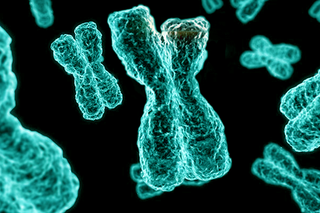
There’s No ‘Depression Gene’ After All, Scientists Say
As genetic science has progressed, it’s become clear that nearly all our genes play a role in any given condition.

You might have heard of the ‘depression gene.’ Actually, you may have heard of several ‘depression genes.’ Since the mid ’90s, hundreds of studies have looked into 18 genes identified by research as likely to influence depression risk, due to the type of biological functions they control. SLC6A4, for instance, was one of those 18 genes; it controls whether the neurotransmitter serotonin — low levels of which have been linked to depression in some people — reaches brain cells, and what it does when it gets there. Yet, a new, most-comprehensive-to-date review of research suggests that SLC6A4 does not hold the key to depression risk after all. Neither do the other 17 influential genes. They never did.
Even when the authors lowered the bar on scientific rigor, and included studies that couldn’t ensure chance hadn’t influenced results, they found no effect of a single gene on depression risk. “This isn’t a research paper. This is a massacre,” writes a psychiatrist and highly regarded science and medicine blogger, who posts under the pseudonym Scott Alexander, in a widely circulated post explaining the significance of the study. It’s a massacre, because it basically rules out the idea that any single gene or gene cluster is responsible for any single condition.
Related on The Swaddle:
Study Suggests Clinical Depression Is a Progressive Disease
We know this, now; over the last decade, as genetic science has advanced, it has become increasingly clear that no single trait or condition is linked to a single gene. “The most recent estimate for how many genes are involved in complex traits like height or intelligence is approximately ‘all of them’ – by the latest count, about twenty thousand,” Alexander writes in a related post.
Before 2010, we didn’t know this; scientists were still chasing the one-gene-fits-one-problem theory, conducting studies with hundreds of people and drawing conclusions that supported the hypothesis from that small pool. But, the field of genetics has advanced a lot in the last decade; scientists now know it takes hundreds of thousands of subjects for them to generate any relevant genetics insight. This is borneout by reproducing some of the original studies that supported the single-gene theory at a larger scale — where they didn’t hold water.
Which means the findings of this study may well ripple beyond mental health. Of late, autism has been a hot field for researching a single-gene origin (full disclosure: The Swaddle has reported on these single-gene, or single-cluster, studies). Several have been identified, but their degree of influence may now be questionable.
This isn’t to say there’s no genetic component to depression (or, potentially to other conditions, like autism); there is. Depression can run in families and ultimately, every internal function — whether usual or unusual — is regulated by genes. Studies of identical and fraternal twins suggest that depression is 40 to 50% heritable, meaning genes are involved either entirely; or in part in roughly half of all major depression cases. The question is which ones and how many — and the body of research into the 18 genes previously identified as hotspots offers no compelling evidence that they are among the undue influencers. But scientists say they’re on the cusp of finding out.
As Ed Yong writes on the topic for The Atlantic: “If anything, the sordid history of the [single]-gene approach propelled the development of better methods.”
Liesl Goecker is The Swaddle's managing editor.
Related


What It’s Like To Live With: Clinical Anxiety
